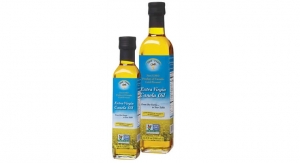With a little more than two years under its belt, the Saskatchewan Nutraceuti�cal Network (SSN), Saskatoon, Sas�katchewan, Canada, continues to make a name for itself-and for the Canadian nutraceuticals industry. Incorporated in April 1997, the non-profit organization in February 1998 received $1 million for four years of funding from the Agri-Food Innovation Fund, a joint program of the federal and Saskatchewan governments. The SSN was established to represent the nutraceutical, functional food and plant derived cosmetic (dermaceutical) industries in the province of Saskatchewan. President Kelley Fitzpatrick commented on the organization's early days. "Initially when we started, I walked into cubicle with one box, no members and no idea what I was going to do. Our mandate was overwhelming and vast. But," she said, "we have come a long way in last two years. We are focused on the nutraceuticals industry and while we promote research and interact with regulatory agencies, the industry remains our number one concern."
So far, she said, the priority has been disseminating information. "We work to organize trade missions, we run seminars, we get out there and talk to people. We want to promote understanding of our industry to the rest of the world." The regulatory aspects involved with nu�traceuticals and functional foods is another priority for the network. Ms. Fitzpatrick is a member of the Expert Advisory Panel for Standards of Evidence for Health Claims for Foods under the auspices of the Nutrition Evaluation Division. The mandate of the Panel will be to work with Health Canada to assist in the development of standards of evidence to allow structure/function and risk reduction claims for foods in the country. "We have a good sense of what's going on with regulations," she said. "We want to make sure we continue to interact with these governing bodies as the industry moves forward."
Also on the priority list at SSN is research facilitation. "We have a number of initiatives that have evolved out of academia and we continue to interact with universities and research organizations. But," she reiterated, "our number one focus is the industry. We want to be one-stop shopping for nutraceutical information."
The network's members are companies within the Saskatchewan Province as well as firms from other parts of Canada, the U.S. and recently, Europe. The organization has 96 members, including 50 companies; 21 trade associations and service organizations; 13 research and development facilities and 12 government organizations. Right now SSN is principally government-funded, with about 15-20% of its capital coming from membership fees.
Companies in SSN are primarily involved in the herbal and oilseed product areas. In terms of the former, the primary herbs produced on a limited scale in Saskatchewan include echinacea, ginseng, garlic, milk thistle, feverfew, goldenseal, St. John's Wort, valerian, astragalus and cayenne. Other herbs include anise, fireweed, senega root, sarsaparilla, chamomile, yarrow, calendula and stinging nettle. In the oilseed area, both encapsulated and bottled oil products are sold; ingredients include borage, evening primrose, flaxseed, hemp, fish oil, conjugated linoleic acid (CLA), pumpkin seed and canola phytosterols. Flaxseed lignans are also available. "The oilseed sector is farther along the road," said Ms. Fitzpatrick. "Essential fatty acids are our flagship product." The functional food area is also represented with cereal and legume crops such as fenugreek, wheat bran and oat bran; additional ingredients include high oleic sunflower oil, modified fatty acid canola oils and milled flaxseed.
-E.S.
Features
Saskatchewan Nutraceutical Network Supporting Canadian Nutraceuticals Business
Canadian association exploding rapidly.
05.01.00
Related Knowledge Center
Related Buyers Guide Companies
-
-
Regulations

Trademarks and Social Media: What Nutraceutical Marketers Need to Know
Social media sites put a lot of stock into federal trademark registration, and so should you.By Josh Gerben, Founder, Gerben Law Firm, PLLC 05.04.17
-
Liposomal Joint Health Product exoFlex Debuts
Product features BiovaFlex, curcumin, boswellia, MSM and vitamin C.03.15.17
-
Breaking News | Infant & Children's Health | Probiotics & Prebiotics | Research | Research News
Prebiotic Shown to Improve Appetite Control in Obese Children
Prebiotics feed the good bacteria in the child's colon and create a feeling of fullness and reduction in energy intake.03.07.17
-
Breaking News | Functional Foods & Beverages | Industry & Market News | Nutrition Bars & Snacks | Regulations | Sweeteners | World Markets
Two-Thirds of Packaged Foods & Drinks in Canada Contain Added Sugars
Government groups have recommended limiting intake of added sugars to a maximum of 5-10% of calories consumed.01.16.17

















